Potassium is a very important mineral for a number of functions in our body. Let’s find out what potassium is and the role of potassium in health through the article below!
1. What is potassium?
Potassium is a trace element that is essential for health and is found in the foods we eat every day. It is also an electrolyte that helps support a variety of essential functions in the body.
About 98% of the potassium in the body is found in cells. Of this, 80% is found in muscle cells, the remaining 20% can be found in bones, liver and red blood cells.
When entering the body, potassium acts as an electrolyte. Electrolytes are substances that when exposed to water, they will break down into positive or negative ions that can conduct electricity. Potassium ions carry a positive charge.
Our bodies use this positive charge to manage many important body processes, control nerve signals and muscle contractions.
Therefore, low or high levels of electrolytes in the body can affect many important functions. So potassium plays a very important role in human health.

Potassium is an essential mineral nutrient that is very important to the body.
2. Health Benefits of Potassium
Helps Lower Blood Pressure
High blood pressure is a health problem that many people around the world face, is a risk factor for heart disease and is the leading cause of death worldwide.
High sodium levels can increase blood pressure, especially in people with high blood pressure. A diet rich in potassium can lower blood pressure by helping the body get rid of excess sodium.
A study was conducted to investigate the effects of dietary potassium on the effects of sodium on blood pressure, including 1,285 participants aged 25 – 64.
Scientists found that those with the highest potassium diets had systolic blood pressure that was 6 mmHg lower and diastolic blood pressure that was 4 mmHg lower than the average.
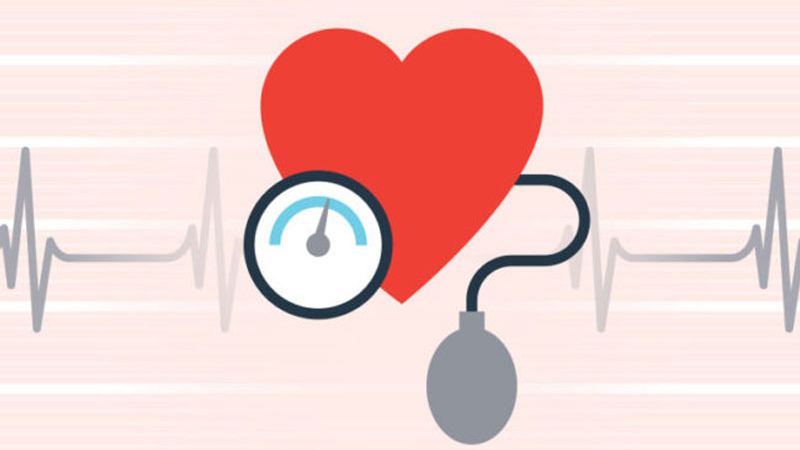
Potassium is effective in helping to reduce blood pressure.
Diabetes Support
Potassium is a mineral that is essential for insulin secretion from the pancreas, and several studies have focused on its relationship to glucose (blood sugar) levels and diabetes.
A 2015 study evaluated the effects of potassium on glucose levels in older adults, and found a significant association between dietary potassium intake and improved insulin sensitivity and secretion.
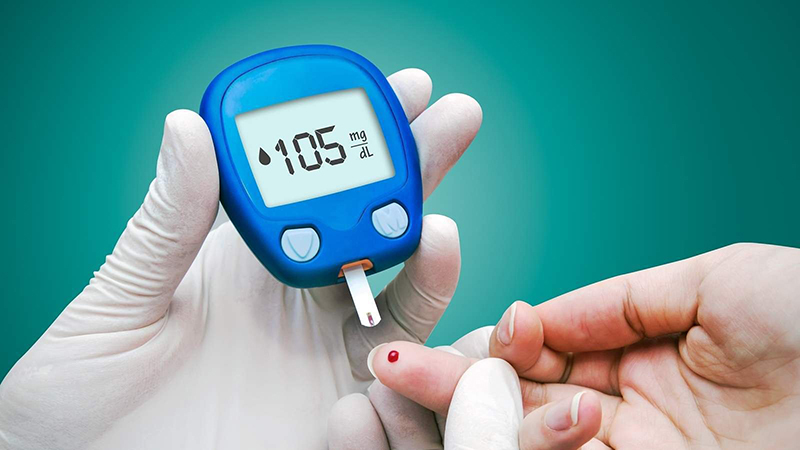
Potassium is a mineral involved in insulin activity, which helps lower blood sugar.
Preventing Stroke
A stroke occurs when there is a lack of blood flow to the brain. It is responsible for the deaths of more than 130,000 Americans each year.
Several studies looking at the effects of increased potassium intake on cardiovascular risk factors and disease have found that eating a diet rich in potassium may help prevent stroke.
An analysis of the association between habitual potassium intake and cardiovascular disease (CVD) in 11 studies with 247,510 participants found that people who ate more potassium had a 21% lower risk of stroke than average.
They also found that eating a diet rich in this mineral was associated with a reduced risk of heart disease.

Potassium may help prevent strokes
Preventing Osteoporosis
Osteoporosis is a condition characterized by porous and brittle bones that is often associated with a deficiency of calcium, an important mineral for bone formation and development. (See also calcium products to supplement minerals to prevent rickets in children, prevent osteoporosis in adults).
Interestingly, in a study on the effects of alkaline potassium salt supplementation on bone metabolism, it was shown that a diet rich in potassium can help prevent osteoporosis by reducing the amount of calcium the body loses through urine.
In a study on the effects of nutrition on bone health conducted in 62 healthy women aged 45 – 55 years, scientists found that those who ate more potassium had a larger total bone mass than normal.
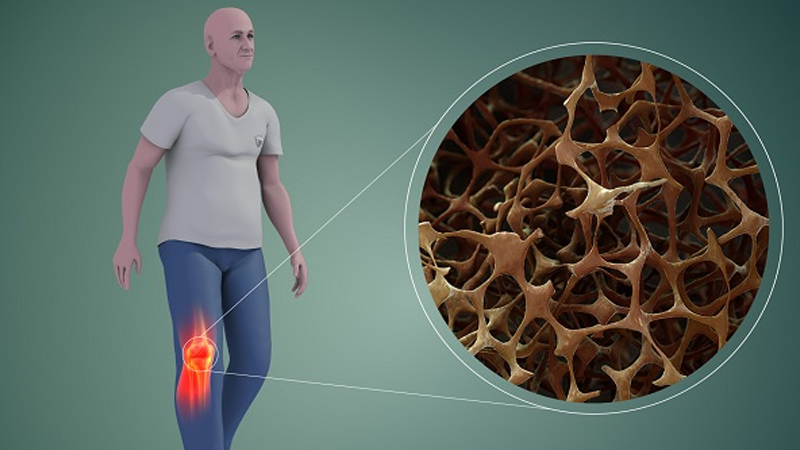
Potassium helps prevent osteoporosis
Preventing Kidney Stones
Kidney stones are crystals of material that can form in concentrated urine.
Calcium is a common mineral in kidney stones, and some studies in the nutritional management of kidney stones have shown that potassium citrate reduces calcium levels in urine. Therefore, potassium supplements may help prevent kidney stones.
Many fruits and vegetables contain potassium citrate, so it is easy to add this potassium salt to your diet.
In a study of dietary calcium, other nutrients, and the risk of symptomatic kidney stones over a four-year period in 45,619 men, scientists found that those who consumed more potassium daily had a 51% lower risk of developing kidney stones.
Similarly, in a 12-year study comparing dietary calcium, calcium supplements, and other nutrients as factors influencing kidney stone risk in 91,731 women, scientists found that those who consumed the most potassium daily had a 35% lower risk of kidney stones.
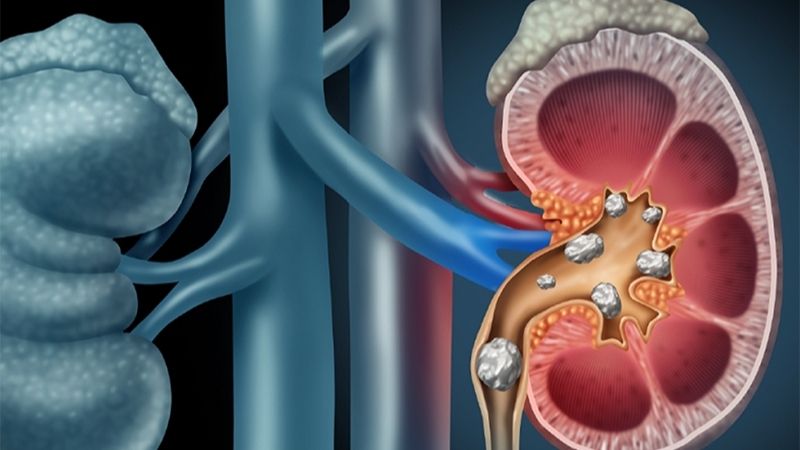
Using potassium in reasonable amounts every day helps reduce the risk of kidney stones.
Reduce Water Retention
Water retention is a condition that occurs when excess fluid accumulates in the body. Historically, studies have shown potassium to be effective in treating water retention.
Research on the mechanisms by which potassium restriction affects blood pressure and renal sodium retention suggests that a high potassium intake may help reduce water retention by increasing urine production and decreasing sodium levels

Swelling of the body due to water retention
3. The role of potassium at each age
Children
Potassium is one of the essential minerals and plays an important role in the development of muscles and brains in children. In addition, adequate potassium supplementation also helps children reduce the risk of cardiovascular diseases and kidney stones when they grow up.

Potassium is one of the minerals that plays an important role in muscle and nerve development in children.
Pregnant women
A woman’s blood volume increases significantly during pregnancy, so she will need more electrolytes than usual. Potassium is one of the electrolytes, helping to keep electrolyte levels balanced.
In addition, women are very susceptible to leg cramps during pregnancy. Potassium deficiency is also one of the causes of cramps in pregnant women.

Pregnant women need more potassium than usual.
Adults
Supports blood pressure reduction, prevents stroke.
Supports metabolism in the body, supports diabetic patients, plays an important role in muscle and nerve development.
Reduces water retention and prevents the risk of kidney stones.

Adequate potassium supplementation provides many health benefits
4. Effects of Potassium Deficiency or Excess
If Your Body is Potassium Deficiency
Potassium deficiency mainly occurs when your body suddenly loses too much potassium for some reason. This can include causes such as chronic vomiting, chronic diarrhea, or in cases where your body loses a lot of water.

Chronic vomiting is one of the causes of potassium deficiency in the body.
If the body has excess potassium
Excess potassium in the blood mostly occurs when the body cannot or has a reduced ability to remove this mineral through urine. Therefore, excess potassium mainly affects people with poor kidney function or people with chronic kidney disease.
In addition, some subjects need to pay attention to monitoring the amount of potassium added to the body, including people with chronic kidney disease, people taking blood pressure medication and the elderly, because kidney function in these subjects is often impaired.
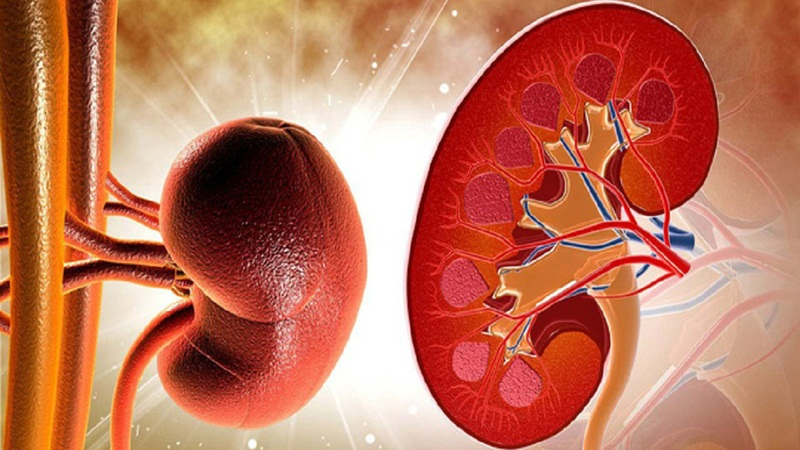
People with chronic kidney disease need to pay attention when supplementing potassium.
5. Potassium-Rich Foods
Potatoes
Potatoes are a potassium-rich food, especially when cooking, leave the skin on as this is the part that is rich in potassium. A baked potato with the skin contains more than 900 mg of potassium.
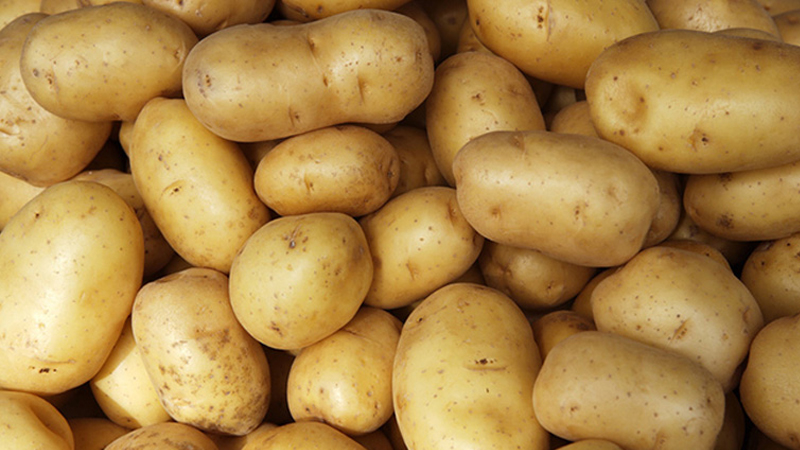
Potatoes are a potassium rich food.
Beans
Beans are a great source of potassium. There are about 600 mg of potassium in about 1 cup of beans.
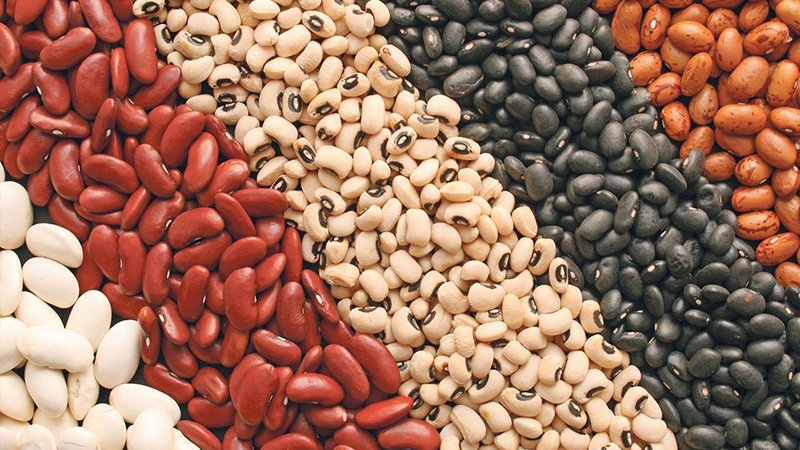
Beans are a great source of potassium.
Bananas
Yellow fruits are generally the best source of potassium. A medium ripe banana contains about 422 mg of potassium.
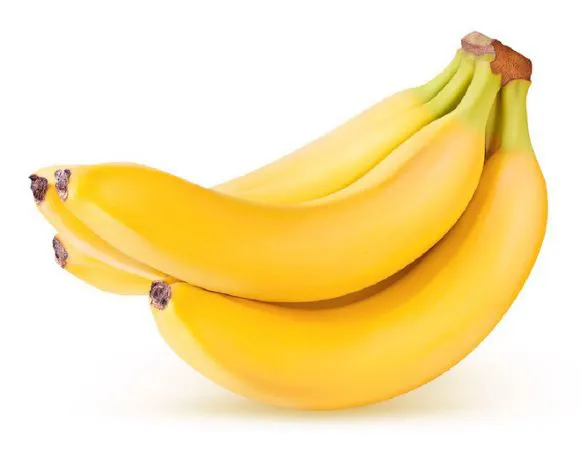
Bananas, like other yellow fruits, are rich in potassium.
Seafood
Popular fish such as salmon, mackerel, halibut, tuna and snapper all have more than 400 mg of potassium in a filet for about 3 ounces of fish.
Green Vegetables
Green vegetables are both easy to find and rich in potassium. Half a cup of cooked spinach contains 400 mg of potassium. The same amount of white radish has more than 450 mg and beets have more than 600 mg of potassium.
Milk
Milk is commonly known as a rich source of calcium. However, milk is also rich in potassium, making it an ideal source of potassium for you.
A cup of low-fat or skim milk contains about 350 to 380 mg of potassium, while plain yogurt will give you more than 500 mg per cup.
6. Notes on Potassium Supplementation
Recommended Dosage
The National Academies of Sciences, Engineering, and Medicine (NASEM) recommends the following daily potassium intake:
- Infants up to 6 months: 400 mg/day.
- Children 7-12 months: 860 mg/day.
- Children 1-3 years old: 2,000 mg/day.
- Children 4-8 years old: 2,300 mg/day.
- Men 9-13 years old: 2,500 mg/day.
- Women 9-13 years old: 2,300 mg/day.
- Men 14-18 years old: 3,000 mg/day.
- Women 14-18 years old: 2,300 mg/day.
- Men over 19 years old: 3,400 mg/day.
- Women 19 years and older: 2,600 mg/day.
- Pregnant and lactating women: 2,900 mg/day.
Side effects
If you supplement potassium from vegetables or fruits, you need to pay attention to bloating, flatulence, and indigestion caused by fiber.
Some common side effects of potassium supplements include:
- Diarrhea.
- Nausea.
- Stomach pain.
- Vomiting
More serious and rare side effects include:
- Cold, pale skin.
- Black stools.
- Numbness or tingling in the hands, feet, or lips.
- Unexplained anxiety.
- Unusual tiredness or weakness.
- Weakness or heaviness in the legs.
Hopefully the above article has helped you understand what potassium is and the important role of potassium in the body’s vital activities. If you find the article interesting and useful, please share it with your relatives and friends!





